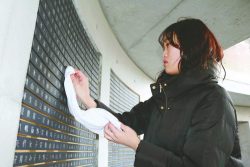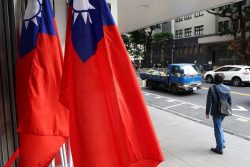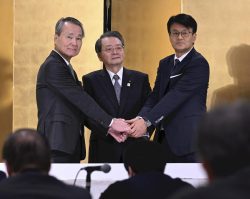16:00 JST, May 1, 2021
The term “military comfort women” can easily lead to misunderstandings, such as the notion that such women were forcibly taken away. It is inappropriate to use it in textbooks and other documents, and it should be ensured that the term is not used.
The government has adopted a written response at a Cabinet meeting that using the term “military comfort women” is not appropriate. This was in response to a written question from Nobuyuki Baba, secretary general of Nippon Ishin no Kai (Japan Innovation Party).
The Japanese term in question, “jugun ianfu,” also often translated as “wartime comfort women,” did not exist during World War II. It was coined after the 1970s. The term was later popularized in Japan and abroad, partly due to the false testimony of Seiji Yoshida, who claimed that the former Imperial Japanese Army forcibly took Korean women and sent them to comfort stations on the front lines.
It is only natural that in its recent written reply, the government presented the unified view that “it is appropriate to simply use the term ‘comfort women.’”
In 2014, The Asahi Shimbun newspaper, which had reported that comfort women had been forcibly taken, acknowledged that Yoshida’s testimony was false and retracted its previous articles.
Junior high school textbooks had stopped mentioning “military comfort women,” but the term reappeared in one of the junior high school social studies textbooks on history that began to be used in April this year. Two companies are also using this expression in the high school general history textbooks to be used from next spring.
Textbook companies should take past developments into account and recognize that they have a responsibility to avoid using terms that may cause misunderstanding.
The textbook companies should immediately apply to revise their wording in response to this Cabinet decision. The Education, Culture, Sports, Science and Technology Ministry should also strive for stricter screening of textbooks in the future.
A 1993 statement by then Chief Cabinet Secretary Yohei Kono also includes the phrase “wartime ‘comfort women.’” It must be said that it complicated the issue.
The government has repeatedly expressed its apology and remorse to many women in Asian countries who became comfort women during the war and whose honor and dignity were damaged. The government has been sincerely addressing the issue through measures such as contributing ¥1 billion based on an agreement with South Korea.
In recent years, the government has clarified its position on a number of occasions, including in the Kono Statement, that there was no systematic forced recruitment by the military, and it has been trying to spread correct historical recognition in the international community. The use of “military comfort women” in textbooks undermines these efforts.
In the past, a U.N. committee issued a report that concluded that comfort women were “sexual slaves by the Japanese Imperial Army.” Anti-Japanese activities by South Korean civic groups, such as setting up statues of young girls symbolizing comfort women, are continuing.
The government must step up its efforts of sending out messages to prevent the further spread of criticisms that are not based on facts.
— The original Japanese article appeared in The Yomiuri Shimbun on May 1, 2021.
"Editorial & Columns" POPULAR ARTICLE
-
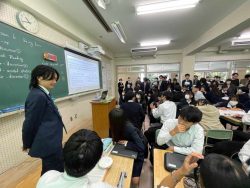
Artificial Intelligence Expands Possibilities for Foreign Language Learners
-

Build Intellectual, Physical Strength, As Well As Communicative Power / Japan Should Move from Beneficiary to Shaper of World Order
-

Global Economy in Turmoil: Prevent Free Trade System from Going Adrift / Risks to Financial Markets Must Be Heeded
-
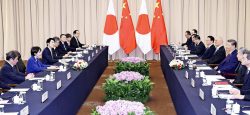
Japan-China Strain Set to Persist as Beijing Officials Self-Interestedly Bash Tokyo; Takaichi Unlikely to Back Down
-

French and German Ambassadors to Japan Call for Democracies to Unite in Defense against Russian Disinformation
JN ACCESS RANKING
-

As Chinese Tourists Shun Japan, Hotels and Stores Suffer
-

Core Inflation in Tokyo Slows in December but Stays above BOJ Target
-

Osaka-Kansai Expo’s Economic Impact Estimated at ¥3.6 Trillion, Takes Actual Visitor Numbers into Account
-

Japan Govt Adopts Measures to Curb Mega Solar Power Plant Projects Amid Environmental Concerns
-

BOJ Gov. Ueda: Highly Likely Mechanism for Rising Wages, Prices Will Be Maintained








